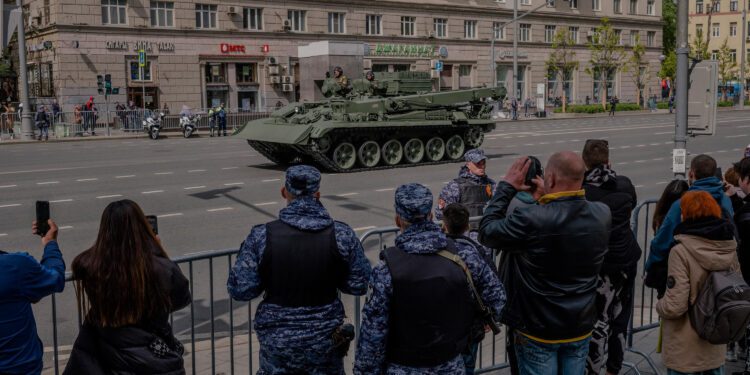Russia has announced a significant tax increase on businesses and high-income individuals as the government seeks additional revenue to support its ongoing military operations in Ukraine. The Ministry of Finance unveiled new tax thresholds and proposed a rise in corporation tax, aiming to generate approximately 2.6 trillion rubles ($29 billion) annually. These measures come as Russia faces a substantial budget deficit exacerbated by sanctions that have curtailed lucrative energy exports to Europe.
The proposed tax changes are set to take effect in 2025. Under the new system, the current flat income tax rate of 13% for most Russians and 15% for higher earners will be replaced by a more progressive tax structure. The 15% rate will now apply to annual incomes between 2.4 million and 5 million rubles ($27,000-$56,000). Additional tax bands of 18%, 20%, and 22% will be introduced for higher income brackets, with the top rate applying to earnings exceeding 50 million rubles ($560,000).
Finance Minister Anton Siluanov stated that these changes are intended to create a “fair and balanced tax system,” which will help to strengthen Russia’s economic stability amidst ongoing financial challenges. The government expects these amendments to impact approximately 2 million people. To offset the burden on families, the proposed changes include tax rebates for households with two or more children.
Russian President Vladimir Putin first suggested increasing taxes on the wealthy and corporations shortly before securing his fifth term in office in March. This marks a shift from the flat rate of income tax that characterized his economic policy during his initial two decades in power. The financial strain of the war in Ukraine, which began in February 2022, has forced the government to look for new revenue streams as sanctions have severely impacted Russia’s economy.
Since the invasion, government spending has exceeded revenue by tens of billions of dollars. The sanctions have not only reduced energy sales but also led to a broader economic downturn, prompting the need for these fiscal measures. The Ministry of Finance’s calculations indicate that the increased tax revenue will be crucial in maintaining Russia’s economic wellbeing during this period of heightened geopolitical tension and military expenditure.
Despite the financial pressures, Russia continues to pursue significant projects and military engagements. The country recently announced plans to build a nuclear power plant in Uzbekistan and has been a notable contributor to the rise in global military spending, according to a report by the Stockholm International Peace Research Institute (SIPRI).
The tax proposal reflects a broader trend of adjusting economic policies to cope with external pressures and internal demands. By targeting the wealthy and businesses, the government aims to distribute the fiscal burden more equitably while securing the necessary funds to sustain its military operations and economic stability.
In conclusion, Russia’s new tax strategy is a direct response to the mounting costs of its military engagement in Ukraine and the economic impact of international sanctions. The progressive tax system and increased corporate taxes are designed to bolster government revenue, ensuring the country can continue to fund its defense expenditures and maintain economic stability in a challenging international landscape.
















